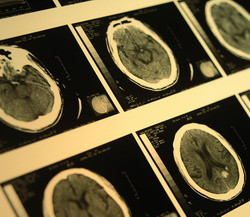Researchers from the universities of Auckland and Florida have found that deep brain stimulation is capable of increasing cellular plasticity in the brains of Parkinson's disease patients.
The study was co-authored by Dr Maurice Curtis of the University of Auckland's Centre for Brain Research, and part-funded by the HRC through the programme 'Neurodegeneration in the human brain – mechanisms and therapeutic targets'.
Deep brain stimulation is a surgical procedure where leads are implanted to reach a specific neural target, and are programmed to deliver chronic electrical stimulation.
The results for the first time provide evidence that apart from the symptomatic relief provided by deep brain stimulation in Parkinson's disease, there is increased proliferation of neural precursor cells in the adult human brain in response to deep brain stimulation electrode implantation together with electrical stimulation.
Read the paper on the study in the online journal PLoS ONE. You can also read about the study in the New Zealand Herald.
